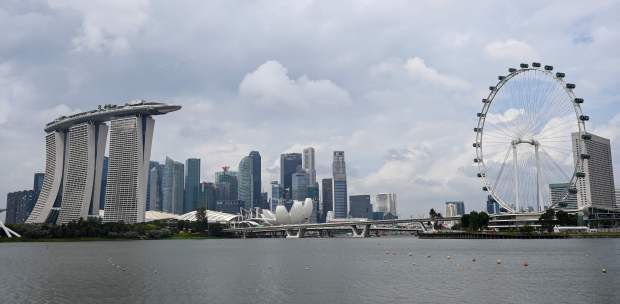MALAYSIA'S competitiveness has seen better times. For example, the Global Competitiveness Report placed us as the 15th most competitive nation in 2015.
However, our 32nd rank in the 2022 IMD World Competitiveness Ranking reveals something has gone amiss. After rebounding at the end of the pandemic, productivity growth this year has been stagnant.
Boosting the nation's competitiveness has therefore assumed greater primacy in the government's agenda.
Last week, Prime Minister Datuk Seri Anwar Ibrahim, in a dialogue with captains of industry, promised quicker approvals of applications.
These measures should advance our already envious 12th spot among 190 economies in the World Bank's ease-of-doing-business index.
Additionally, the government has started to strengthen market-oriented and political institutions for quality governance. This is imperative.
Daron Acemoglu and James A. Robinson, in their 2012 book, Why Nations Fail, argue that strong institutions are the bastion of a nation's prosperity.
China's affluence on the back of a market-oriented economy since the late 1970s makes a strong case for institutional reform.
That Malaysia has dropped six points in the global corruption index over the last three years from 53 in 2019 adds further urgency.
Gradual monetary tightening and looser fiscal policies keep business activity on an even keel amid global economic headwinds, geopolitical tensions, protectionism, and supply disruptions.
Progress in social infrastructure has helped boost our productivity.
At 30 (two ranks below Singapore and five above the United States), we are commendably positioned in the global healthcare index.
With our 96 per cent literacy rate and with a third of our employees having tertiary education, we have a workforce that can aid productivity improvements.
A Zen proverb says: "It takes a wise man to learn from his mistakes. But an even wiser man to learn from others."
To strengthen competitiveness, we gather the following strategies from those ahead of us.
FIRST, like China and South Korea, we need to encourage more students through scholarships to study science, technology, engineering and mathematics (STEM).
In Malaysia, pure-science education attracts only about 20 per cent of the student population compared with more than 30 per cent in Germany, South Korea and India.
And, like Germany, attitudes towards technical and vocational education and training (TVET), should change for the better.
There, TVET is considered to be on a par with academic education. In Malaysia, only about a quarter of students choose TVET compared with 40 per cent in the Organisation for Economic Cooperation and Development (OECD), a club of mostly rich countries.
SECOND, infrastructure development (physical and digital) needs a boost.
Our infrastructure satisfaction rate in the 2021 Global Infrastructure Index is 45 per cent. We need to upgrade our Internet quality, which ranks at a distressing 47th globally.
THIRD, our 36th rank among 132 countries in the Global Innovation Index shows the need for more innovation to drive competitiveness.
Promoting specialised industrial clusters that co-locate competing firms and their supporting businesses in a particular geographical location is one way.
Clusters become powerhouses of competitiveness as firms compete to drive down costs and at the same time share knowledge and jointly innovate.
The electrical and electronics cluster in Penang is a classic example.
Innovation will intensify if we expand our allocation of one per cent of the gross domestic product for research and development (R&D) to be closer to that of the OECD average of four per cent.
Incentivising private-sector R&D through generous tax breaks, lavish grants and industry-university collaboration can also drive the innovation effort.
FOURTH, business sophistication through digitalisation, for example, can drive productivity improvements.
Yet, only a quarter of Malaysia's small- and medium-scale industries have progressed beyond the basics of digitalisation.
Business sophistication can also result from consumer fastidiousness about the quality and novelty of manufactured products.
The US set a global trend on fast-food because Americans demanded quick meals.
A Chinese proverb says: "When the winds of change blow, some people build walls and others build windmills."
While Malaysia has built a windmill of competitiveness, we now need it to turn faster than others if we want to overtake them and enlarge our prosperity.
The writer is the AIMST University vice-chancellor





